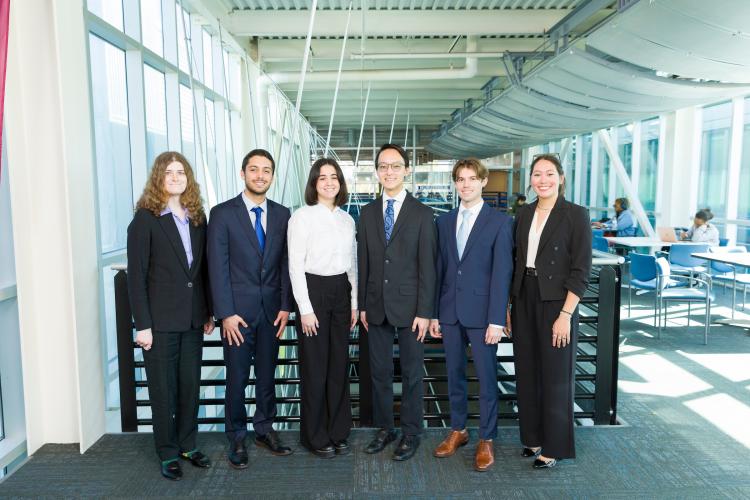
The versatility of plastics has made them increasingly common across industries. While we continuously discover innovative applications, increased plastic use contributes to a growing problem—massive waste accumulation. Dealing with this waste requires investment in both industrial and civilian infrastructure. Our project provided the framework for a circular plastic waste management model through two deliverables—a purification process for pyrolysis oil (“Pyoil”) derived from recycled plastic and an infrastructure plan for Bali, Indonesia, which lacked an effective waste management system.
To address the first objective, we simulated a purification process in Aspen Plus, consisting primarily of a distillation sequence that separated raw Pyoil into light, medium and pygas cuts for use as an ethylene plant feedstock. We included a chemical decontamination system to rid the liquid components of hazardous materials. The separation process also yielded a heavy-cut Pyoil for alternative use. Beyond technical design, we performed financial analysis using CAPCOST to confirm economic feasibility and conducted a safety assessment.
The second portion focused on closing the quantity and affordability gaps to improve the throughput of a manual plastic sorting facility in Bali. We proposed new community education programs and social incentives to increase plastics transported to sorting centers. Improving waste management practices ensured high-quality raw materials for plastic pyrolysis and provided a model for other areas lacking effective infrastructure.
In the long term, both components close their respective areas of the circular plastics economy.
